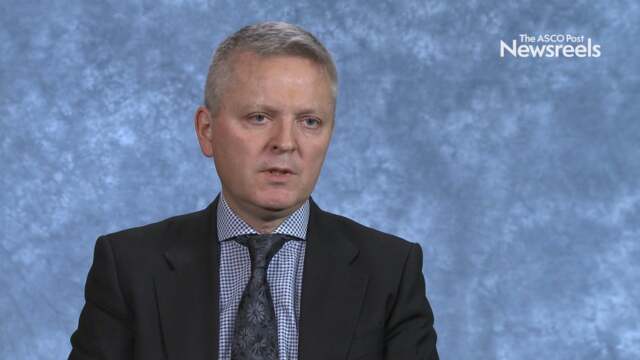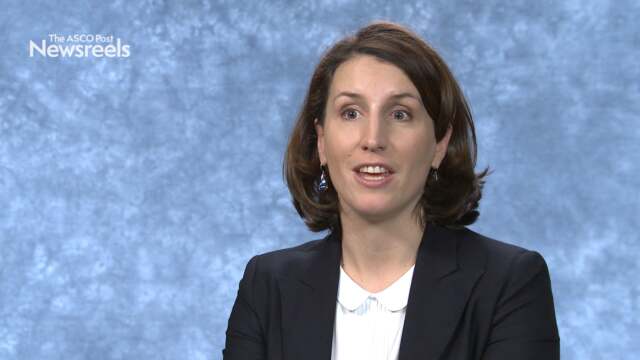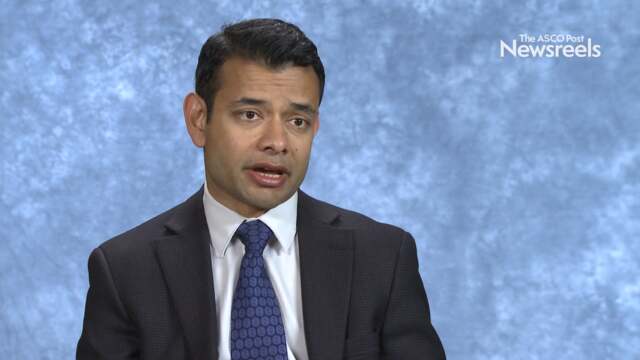Thomas Powles, MD, on Urothelial Carcinoma: Results From the IMvigor211 Trial
2018 Genitourinary Cancers Symposium
Thomas Powles, MD, of Barts Cancer Institute, discusses phase III study findings on atezolizumab vs chemotherapy in platinum-treated locally advanced or metastatic urothelial carcinoma, with an emphasis on immune biomarkers, tumor mutational burden, and clinical outcomes (Abstract 409).
Robert G. Bristow, MD, PhD, of Manchester Cancer Research Centre, discusses germline and somatic mutations; new ways to generate biomarkers that may describe tumor complexity; and how, in the future, this information may help triage patients with aggressive prostate tumors to intensified treatments.
Daniel J. George, MD, of Duke University Medical Center, discusses phase III findings on adjuvant sunitinib in patients with high-risk renal cell carcinoma, in an exploratory pharmacogenomic analysis (Abstract 576).
Patrick Schöffski, MD, MPH, of Catholic University Leuven, discusses findings on the effect of crizotinib on disease control in patients with advanced papillary renal cell carcinoma type 1 with MET mutations or amplification (Abstract 580).
Laurence Albiges, MD, PhD, of the Gustave Roussy Cancer Centre, discusses study findings on the safety and efficacy of nivolumab in metastatic renal cell carcinoma (Abstract 577).
Sumanta K. Pal, MD, of the City of Hope Comprehensive Cancer Center, discusses phase III study findings from IMmotion151, which looked at atezolizumab plus bevacizumab vs sunitinib in untreated metastatic renal cell carcinoma (RCC), and results from a safety and efficacy trial of axitinib in combination with pembrolizumab with advanced RCC (Abstracts 578 & 579).





